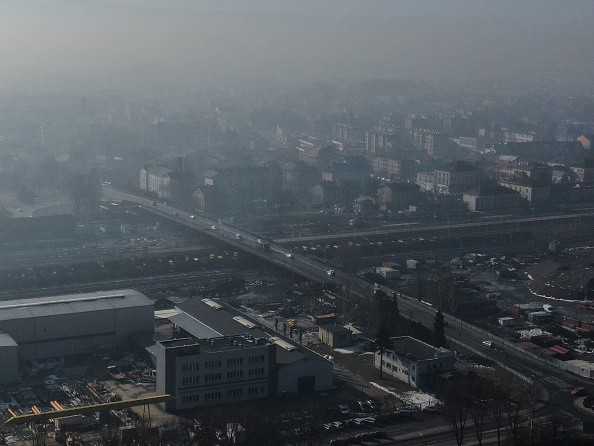In addition to harming physical health, continuous exposure to air pollution has been linked to mental health problems.

Air pollution, particularly fine particulate matter, has been linked to cognitive impairment and depression.
Exposure PM2.5
PM2.5, or fine particulate matter, comprises inhalable particles that are less than 2.5 millimeters in diameter. Industrial and vehicular sources are prominent sources of these particles.
It's unclear how exposure to PM2.5 may enhance the chance of depression.
Related Article : Scientists are Saying that Removing CO2 from the Atmosphere is "No Longer Optional"
Genetic Predisposition

Furthermore, experts are unsure if air pollution might combine with a genetic predisposition to sadness to raise the risk of depression.
In the presence of specific environmental conditions or activities such as smoking, people who have a genetic predisposition for a disease may have a higher risk of getting the disease.
A new study looked at the impact of PM2.5 exposure on brain networks involved in cognition and social stress combined with a hereditary susceptibility to depression.
Dr. Hao Yang Tan, the study's principal author and a scientist at the Lieber Institute in Baltimore, Maryland, told Medical News Today:
"For the first time, the study shows how air pollution and genes combine to affect crucial cognitive and emotional circuits in the brain." Air pollution alters the expression of genes associated with depression."
"Previous research has found a correlation between air pollution and sadness," he added, "but our findings are the first to indicate a direct, neurological causation."
"What's even more remarkable is that the two elements are related in such a manner that they have a multiplier effect on depression risk." That is, when risk genes and poor air are combined, the risk of depression is substantially higher than when either component is considered alone."
The research was published in the Proceedings of the National Academy of Sciences.
Chinese Study
The study enlisted the help of 352 healthy people from Beijing, China. Beijing's air pollution levels are relatively high, with high PM2.5 concentrations.
The researchers looked at numerous distinct genetic variations linked to depression in each person. They calculated their genetic predisposition to depression based on this knowledge.
The researchers utilized air monitoring data from the municipal air quality monitoring station nearest to each person's house for six months before the study to estimate PM2.5 exposure levels for each participant.
Mental Health and Cognitive Impairments
Depression is linked to cognitive impairments and elevated anxiety-depression levels. In other words, these people are more likely to react to a scenario with anxiety or depression symptoms. A questionnaire was used to assess each participant's anxiety and depression levels.
The researchers initially looked at the impact of PM2.5 exposure on cognition and depression-related features.
PM2.5 exposure was linked to worse performance on reasoning and problem-solving tasks, according to the researchers. PM2.5 exposure was also linked to increased anxiety and sadness.
The researchers next looked at brain networks involved in cognition and processing stress-related information and their links to PM2.5 exposure and depression genetic risk.
The researchers evaluated the individuals' brain activity using functional magnetic resonance imaging while they performed a simple cognitive test.
Researchers presented participants with a picture of a rival and compared their performance to that of the competition to see how social stress affected brain activity during the cognitive task.
With the cognitive activity, higher levels of PM2.5 exposure were linked to shorter reaction times, which was enhanced during social stress.
Individuals with a genetic propensity for depression and higher PM2.5 exposure had a more dramatic effect on brain networks due to social stress.
The combined effect of genetic risk and air pollution on brain networks was higher than the sum of the effects induced by each component individually. These findings imply that air pollution may impact brain networks by interacting with a genetic predisposition for depression.
The dorsolateral prefrontal cortex is a part of the brain that plays a role in various functions, including cognition. In people with increased PM2.5 exposure and genetic susceptibility to depression, it was significant areas whose connection altered throughout the cognitive activity.
Increased Depression in Highly Polluted Area

Scientists have seen differences in the dorsolateral prefrontal cortex activity in healthy people with a hereditary susceptibility to depression and people who experience depression.
"More and more individuals are succumbing to depression in locations with excessive pollution," stated research Tan. People's behavior begins to change when pollution levels rise in the environment."
For more news update about Environmental Action, don't forget to follow Nature World News!
© 2025 NatureWorldNews.com All rights reserved. Do not reproduce without permission.





